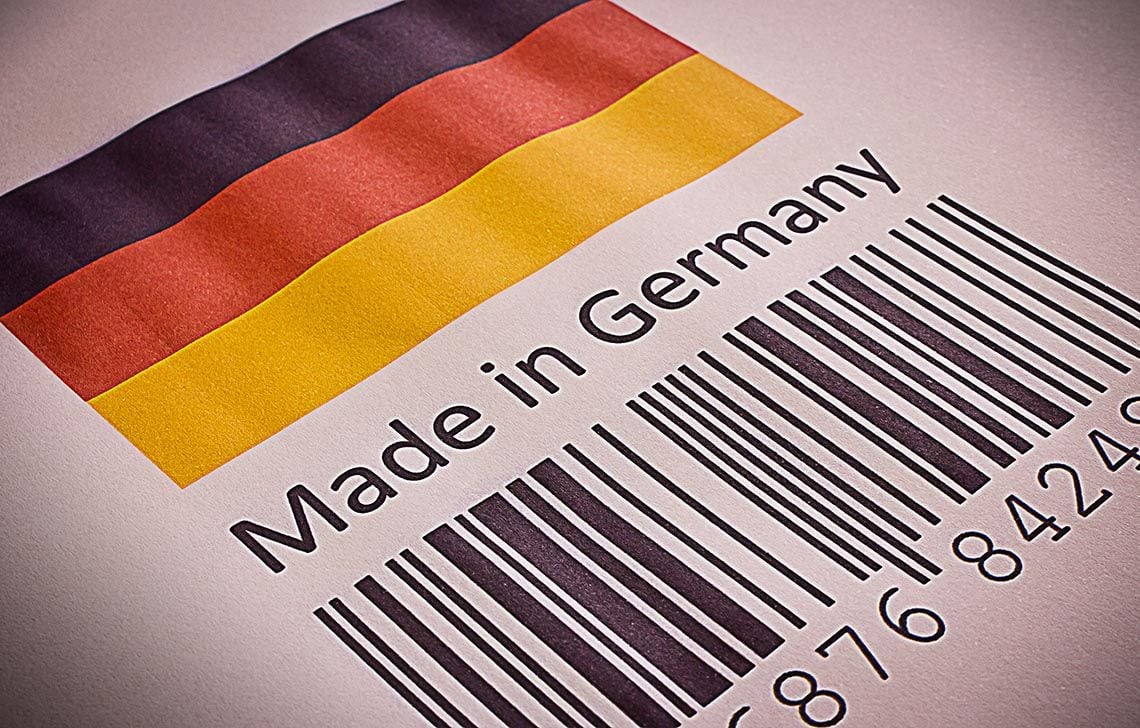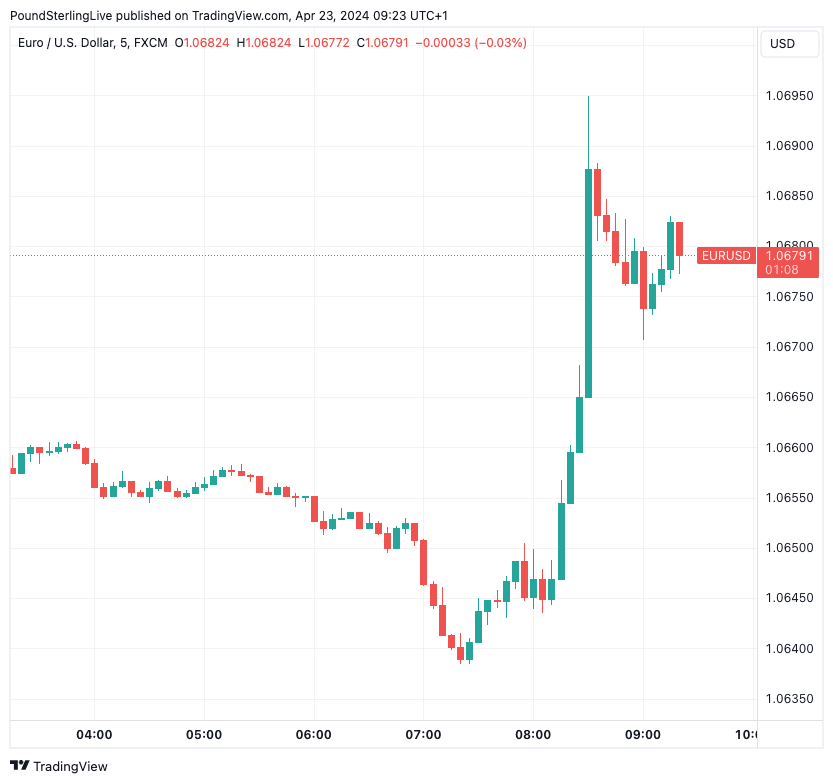Euro-Dollar Rebound Underpinned by Services PMI Blowout and Hopes the Recovery is Here to Stay
- Written by: Gary Howes

Image © Adobe Stock
The Euro to Dollar exchange rate rallied following the release of a bumper German services PMI print that overshadowed another disappointment in the manufacturing sector.
Europe's largest economy posted a sizeable rise in services sector output, with the Services PMI rising to 53.3 in April, outstripping expectations (50.6) and March's 50.1.
"The German private sector returned to growth at the start of the second quarter," said S&P Global, producers of the PMI report.
Although manufacturing disappointed (42.2 vs. 42.8 expected), the services blowout was enough to push the Composite PMI into growth territory at 50.5, well ahead of expectations for 48.6.
The Euro to Dollar exchange rate rose nearly a quarter of a per cent to 1.0690 in the five minutes following the release.
Compare EUR to USD Exchange Rates
Find out how much you could save on your euro to US dollar transfer
Potential saving vs high street banks:
$2,750.00
Free • No obligation • Takes 2 minutes
Gains are being defended in the wake of the release of the Eurozone PMIs that saw Services read at 52.9 in April, up from 51.5 in March and ahead of expectations for a reading of 51.8.
The manufacturing PMI disappointed at 45.6, down from 46 and below expectations for 46.5, but the Eurozone's Composite PMI read at 51.5, ahead of the 50.8 expected by markets.
Above: EUR/USD at 5-minute intervals showing the post-German PMI jump. Track EUR/USD with your own custom rate alerts. Set Up Here
The Eurozone economy is moving comfortably into growth territory, and this might negate any pressing need by the European Central Bank to slash interest rates. For sure, a June cut has been promised by a host of ECB decision-makers, but a follow-on July cut might be shelved.
This can offer the Euro support, all else equal.
"Several factors indicate that the recovery in the private service sector, which dominates the entire economy, is poised to be sustained," says Dr. Cyrus de la Rubia, Chief Economist at Hamburg Commercial Bank:
"Firstly, there has been a positive momentum in new business for the past two months, which translates also into a bolder hiring policy. Secondly, the higher increases in output prices are not only a response to the faster rise in input costs but also reflect the confidence of service providers in setting prices. Lastly, the recovery is occurring simultaneously in the two most significant economies of the Eurozone, Germany and France."





